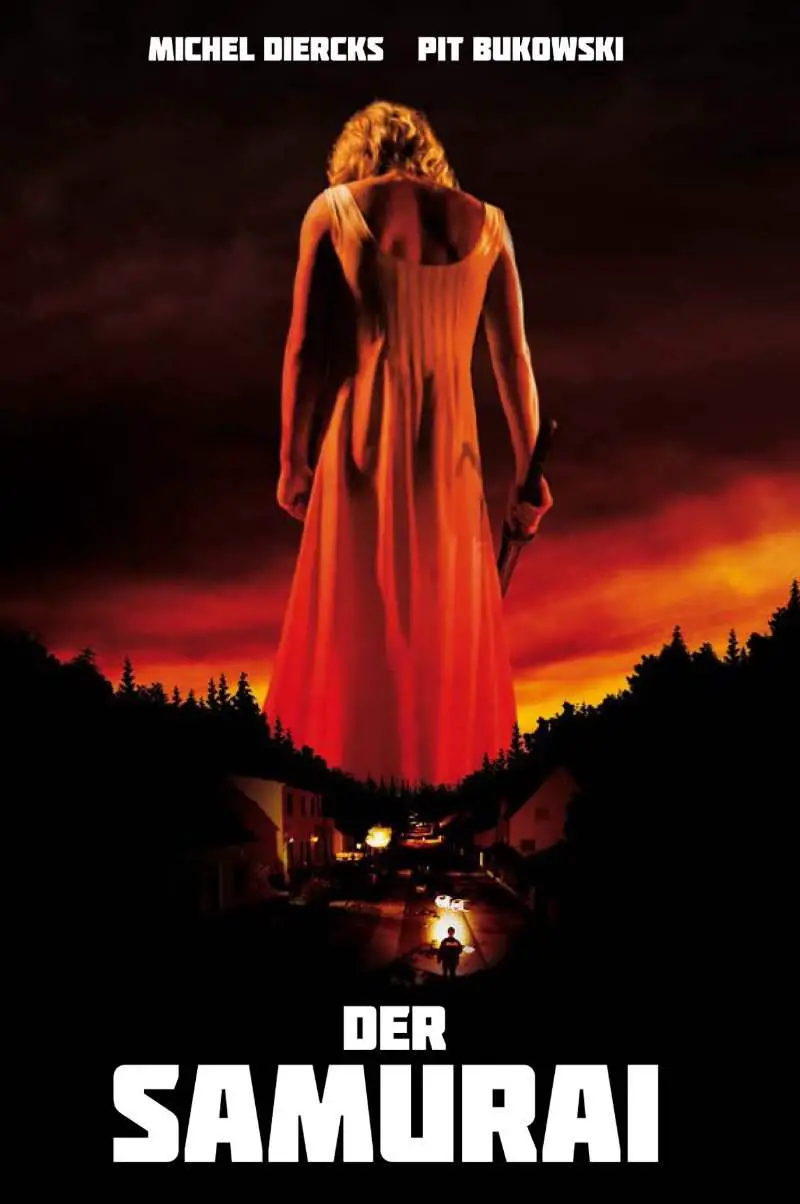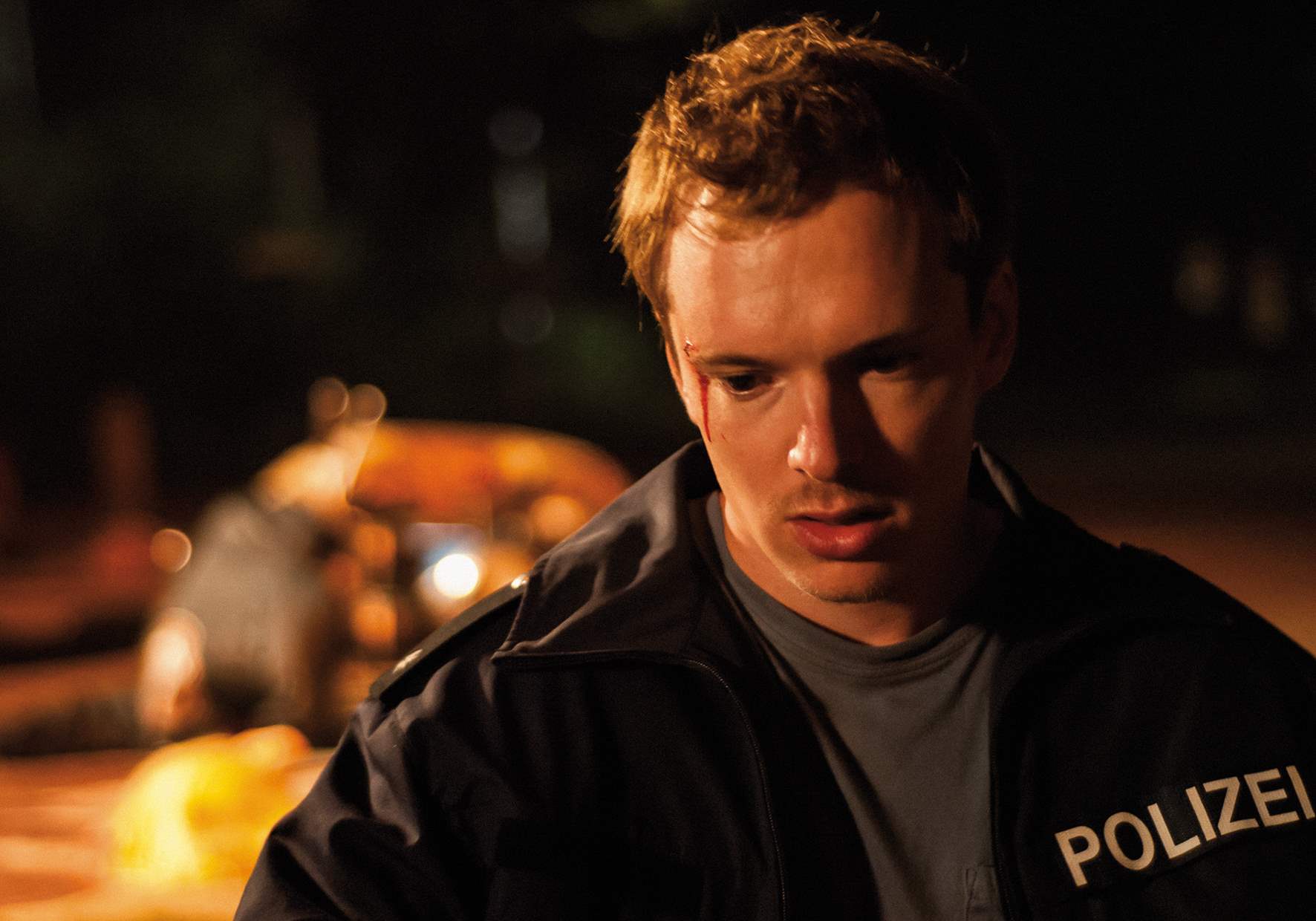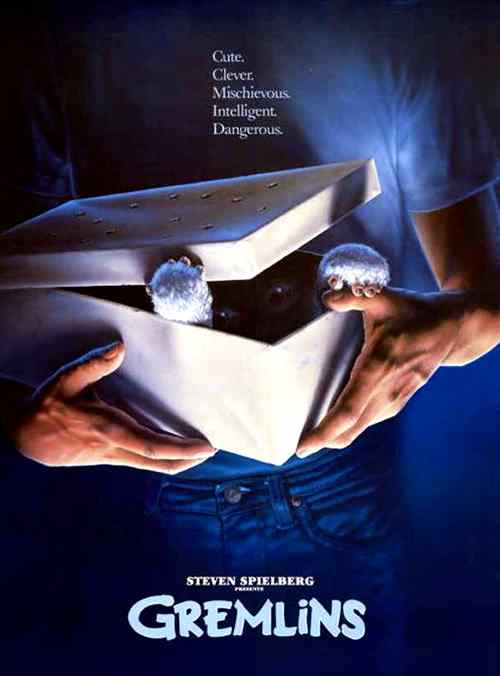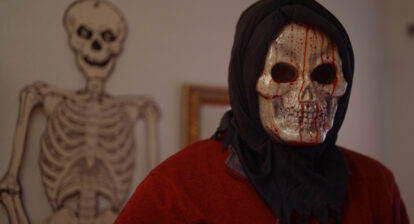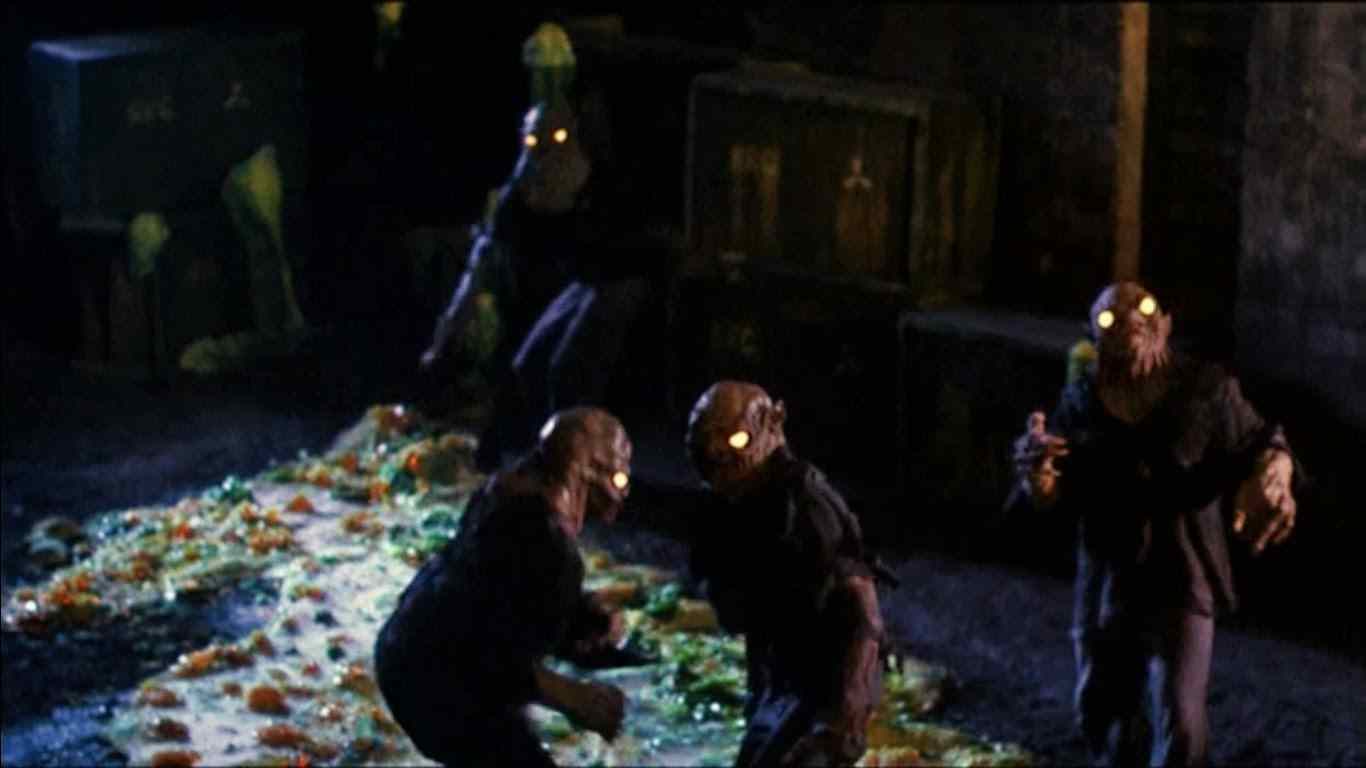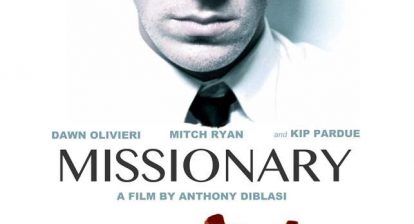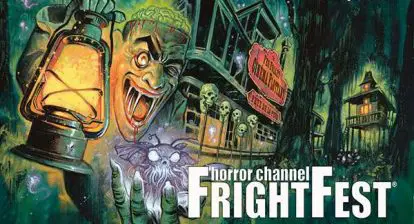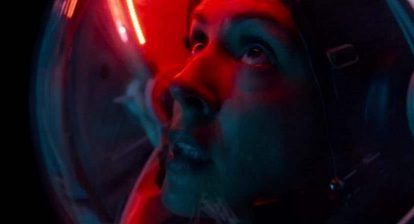With Der Samurai, writer-director Till Kleinert has done the impossible: He’s made a horror movie unlike anything else you’re likely to see this year. Even more shocking, it’s his first feature. Loosely speaking, the premise surrounds a do-gooder police officer named Jakob (Michel Diercks), who’s on the trail of a wolf that’s been plaguing the citizens of a small, unnamed German town. After receiving a mysterious package, he finds himself drawn into a cat-and-mouse game with a strange man in a dress (the titular samurai, played with reckless abandon by Pit Bukowski) who’s out for blood, a dance with Jakob, and maybe more.
The image of the mysterious samurai, katana in hand, back to the camera, his dress flowing beneath him, has become almost instantly iconic. Just weird enough to catch the eye, yet fascinating enough to draw us in, it suggests a bizarre world one cannot help but dive head-first into. It’s also kind of the first shot we get of Bukowski, hunched over a dressing table, his muscles rippling against the delicate white material. Although he’s, obviously, seen from the front many times over in the subsequent hour or so (the film bravely clocks in at less than ninety minutes–just enough time to tell its weird little story), about as much is revealed about him in that first glimpse as in the rest of the movie.
The samurai is an enigmatic character, both the hero and the villain of the piece, and that is exactly how Kleinert intends him to be. Nothing about this man is clear; his motivations, his history, why he’s chosen this night and this man to torment. Early on in the film, Jakob is asked whether or not he’s even on duty and he responds simply; “I have no idea”. Der Samurai is likely to leave audiences confused, rather than give Jakob the closure he so desperately requires, his good-guy shtick is thrown back at him by his bloodthirsty foe, who seizes every opportunity to outrun him, cause utter mayhem, damage personal property, and dispose of anyone and everyone in his way.
Suffice to say Der Samurai is the kind of movie that requires further thought, particularly from a horror standpoint. Utilizing elements of slasher movies, classic giallo, art-house, werewolf movies, fantasy yarns and everything in between, it’s a credit to Kleinert and his hugely talented art and design team that all of these different influences fit together so well, to form a cohesive narrative that is all its own. The gore is outlandish and over-the-top, but well-made and stylistically clever instead of simply crass, suggesting that all is not as it seems. This is a running theme throughout, with various sign-posts declaring this night may be taking place in Jakob’s subconscious, or that the samurai is a split personality, or a manifestation of his hidden desires.Broadly speaking, the film could be taken as a metaphor for homosexuality, homophobia, or both. Embraced by the LGBT community as a powerful call to arms, the mainstream media are split, describing it as “a schlocky queer thriller” (The Hollywood Reporter) and “repugnant” and “noxious” (Slant), which suggests that perhaps critics are unsure whether to herald it as a new voice in queer cinema or condemn it for its worrisome undertones. Whether or not you see the samurai as the manifestation of Jakob’s oppressed feminine, possibly even gay, side or take him at face value as a sword-wielding lunatic on the rampage, will depend on your own personal politics.
This is a movie with a thousand layers but, taken at face value, Der Samurai is an imaginative, disturbing and unique experiment in pushing the boundaries of genre cinema. Conrad Oleak’s plaintive, evocative score adds to the dreamlike landscape of the forest, undercutting the violence and giving everything a woozy, hallucinatory edge that is the perfect accompaniment to Martin Hanslmayr’s lush cinematography. Kleinert confidently takes both directing and writing duties on his debut feature. And, a dab hand at both, he manages to make his point without hammering it home (he suggests, with sly asides, rather than stating outright) and shoots with a keen eye for a memorable image–a road seen through a dream-catcher, for example, is particularly gorgeous, as is a bizarre dance sequence, set against a load of dismembered corpses.
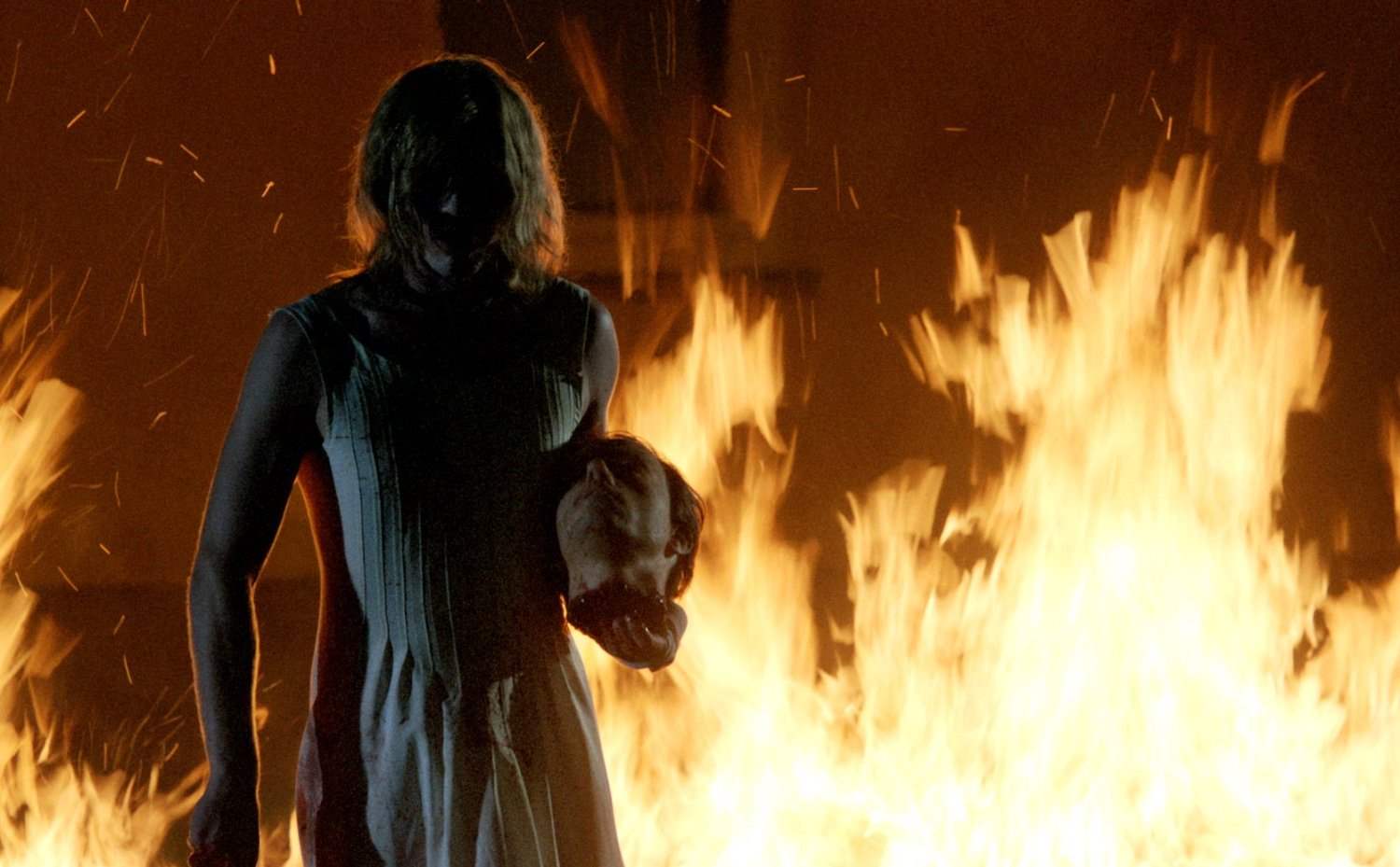 Not all of it works, mind; certain sections are slightly bloated, which, at less than ninety minutes, is irritating, and certain characters are dispensed with far too easily. There’s a sense that the body count needs to be high in order to qualify this as a “real” horror movie, when just the oddness and intrigue of the twisted central relationship is enough to make the hairs on the back of your neck stand up. Further to this, the shocking final sequence (and one particular shot during it) will either make you squirm or cheer, again, depending on personal preference.
Not all of it works, mind; certain sections are slightly bloated, which, at less than ninety minutes, is irritating, and certain characters are dispensed with far too easily. There’s a sense that the body count needs to be high in order to qualify this as a “real” horror movie, when just the oddness and intrigue of the twisted central relationship is enough to make the hairs on the back of your neck stand up. Further to this, the shocking final sequence (and one particular shot during it) will either make you squirm or cheer, again, depending on personal preference.
What sets Der Samurai apart is the two, wildly opposed, yet equally brave, central performances from Diercks and Bukowski as predator and prey respectively (or perhaps that should be vice versa). Diercks’ controlled, naive young cop bounces perfectly off Bukowski’s wild-eyed, psychotic transvestite. With the two of them literally bounding between frames, it’s often and, one suspects, purposely unclear who is chasing whom. The idea of whether or not this night is actually happening hangs over everything. Is Jakob saner than his tormentor, or is it all in his head? Has he finally snapped after working too hard and refusing to take a break, or is this a supposed stranger’s way of forcing him to take stock of his own miserable existence?
Der Samurai asks more questions than it answers, and is stronger for it. We are increasingly being subjected to film-makers’ misguided beliefs that in order for a message to be communicated effectively it must be spelled out to the audience ad nauseum. Kleinert wisely leaves us to make up our own minds about his samurai and, as a result, it’ll be a long time before we forget him. Regardless of whether you agree with its politics, read it as a metaphor for oppressed desire, a study of split personality disorder, or just a twisted fairytale about a madman, in a dress, with a sword, there’s no denying that Der Samurai will make you think, and feel, things unlike any other film released this year.
WICKED RATING: (8 / 10)
Director(s): Till Kleinert
Writer(s): Till Kleinert
Stars: Michael Diercks, Pit Bukowski, Uwe Preuss
Year: 2014
Studio/ Production Co: Schattenkante, Deutsche Film- und Fernsehakademie Berlin (DFFB)
Language: English
Length: 79 minutes
Sub-Genre: Fantasy, Slasher
